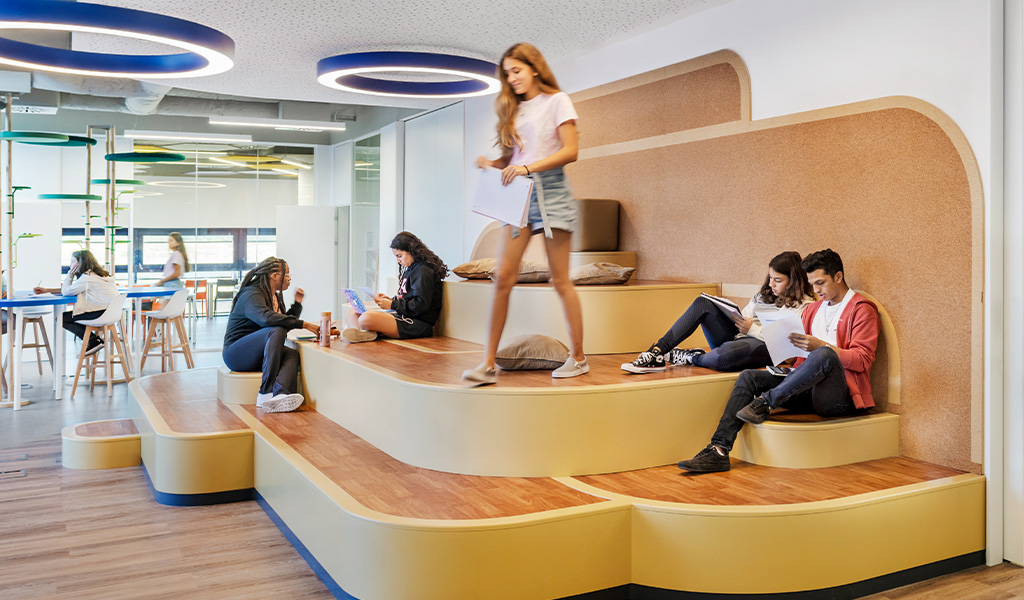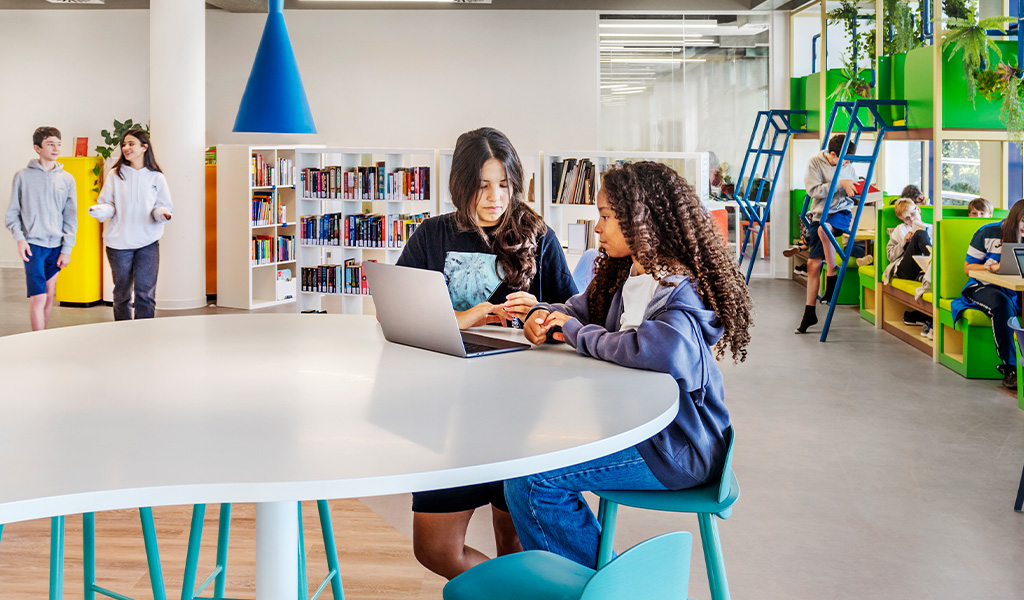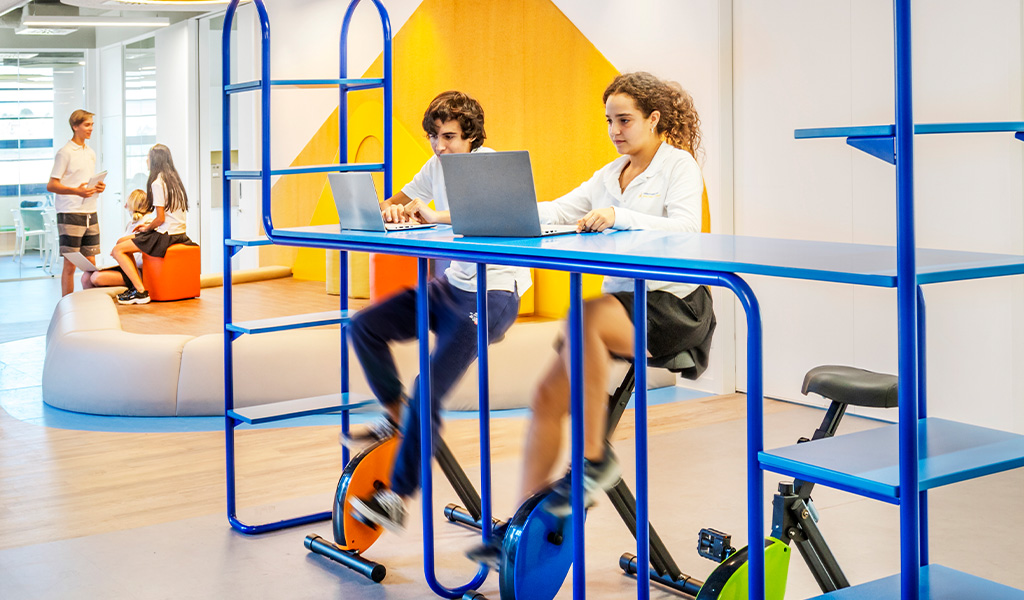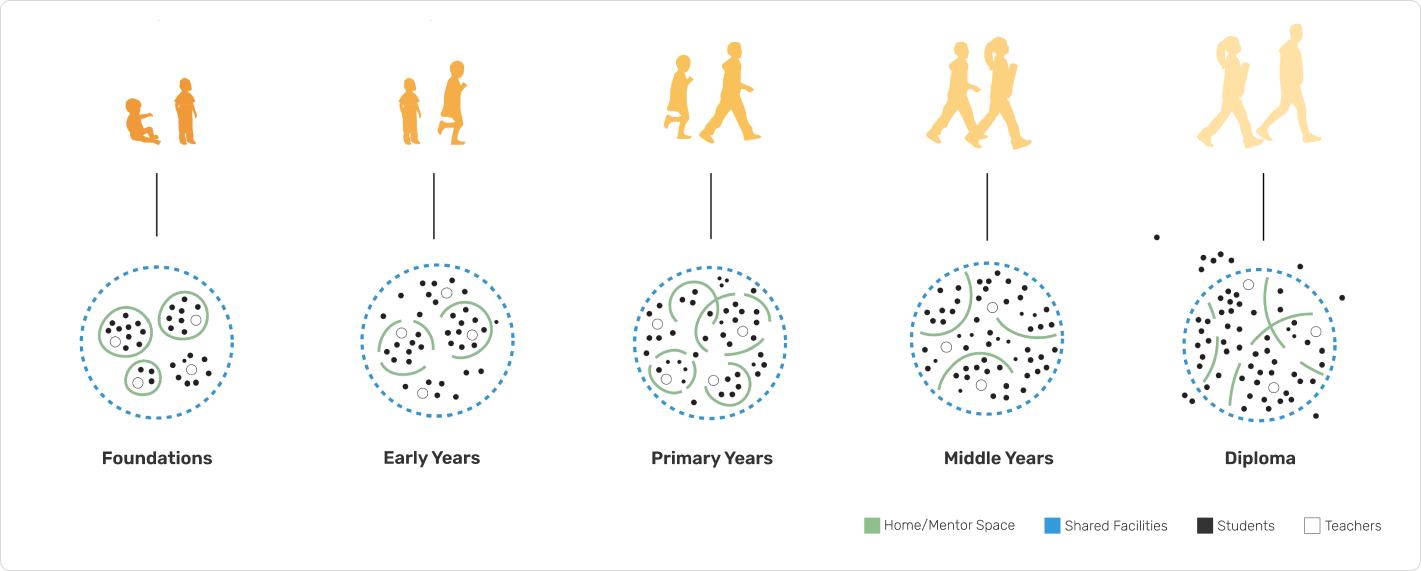Learning through sharing
About Us
Our Story and Origins
Empowering Global Learners Since 1980
Since 1980, we have been committed to supporting each child’s personal growth. Our students have the chance to explore new cultures, form friendships from around the globe, and achieve their academic goals in a nurturing environment.
Founded by Mrs. Susan Farrow, the Madeira British School joined the Sharing Education Group in 2013, becoming part of the International Sharing School network. In 2017, ISS Madeira gained IB World School status, offering the full range of IB Programmes — PYP, MYP, and DP — while expanding its mission to provide exceptional international education.
Students (25/26)
Nationalities (25/26)
Staff Members (25/26)
Teacher/Student Ratio (25/26)
Mission & Aims
The Purpose and Values that Guide Us
International Sharing School – Madeira delivers a meaningful and continuous international education that inspires every student to learn with purpose, grow with empathy, and contribute to a better world.
Educational Aims
We are dedicated to differentiated teaching, which creates opportunities for all students to progress and to make use of their diverse social and cultural backgrounds. International Sharing School is an IB World School authorised to offer the IB PYP, MYP and DP. The acquisition of knowledge is part of a larger framework designed to develop skills and attitudes, driving an inquiry and concept-based approach to learning.
We build on the students’ natural curiosity and enthusiasm to develop their ability to think analytically, connect ideas and be imaginative and creative actors in their own learning process. At ISS Madeira, we study across a broad range of subjects, including specific languages, drawing on the content from educational cultures across the world.
We give special emphasis to language acquisition and development, encourage transdisciplinary learning, focus on developing the skills and passion for learning, and provide students with opportunities for individual and collaborative planning and research.
Mission Statement
International Sharing School – Madeira aims to provide an excellent and continuous international educational experience in order to develop inquiring, knowledgeable and caring young people who help create a better and more peaceful world through intercultural understanding, respect and learning through sharing.
We aim to achieve this by promoting the physical, social, spiritual, mental and emotional health and well-being of all individual students and staff.
We also encourage the intellectual, personal, social and linguistic development of each student, fostering international understanding through working together in a friendly cross-cultural environment, and using English as the official language of instruction.
the Evolution of Learning
Our Six Principles for Innovative Learning
At International Sharing School – Madeira, our core values — Care, Multiculturalism, and Hospitality — shape a vibrant and supportive community. Parents, teachers, and students work together to foster an environment that is encouraging, motivated, and full of energy, guiding every aspect of learning.

Designed primarily for one-way communication, this space is ideal for lectures, briefings and project presentations.

This space supports focused, individual learning, allowing students to work independently and concentrate effectively.

A space designed for dialogue and collaborative group work, supporting teamwork in a flexible and inclusive way.

A welcoming space for students to meet and interact, encouraging knowledge sharing and dynamic movement.

A space that engages students through direct interaction with their environment, whether dissecting a specimen, building a robot, or exploring other hands-on activities.

A space designed for physical activity, helping students learn through their whole bodies, not just their minds.
Want to Experience It Yourself?

“Innovation in education begins by changing how we learn, creating spaces that inspire creativity, collaboration, and adaptability.”
Our educational approach centres around transforming the learning experience by emphasising dynamic teaching methods and fostering critical thinking, collaboration, and assertive decision-making in an environment designed for creativity and exploration.
We recognised that traditional classroom designs limited student engagement and creativity. To address this, we teamed up with designers, architects, teachers and physiologists to rethink how learning environments can stimulate both students and teachers. We introduced a variety of working areas that accommodate different learning styles, from quiet, focused spaces to lively, collaborative settings.
– Miguel Ladeira Santos, CEO of Sharing Education Group
Our Learning Environments
Supporting Students Through Every Stage
Students have different needs depending on their level of independence, and our learning environments are designed to reflect this — both in the physical layout and the size of the communities they belong to.
The diagram on this spread provides an overview of the programme structure, illustrating how learning spaces evolve across the year groups. For example, PYP students share a larger community with several home bases, while MYP students transition to mentor spaces. DP students enjoy even more flexible, bookable mentor areas tailored to their growing autonomy.
Community sizes expand as students progress, ranging from 24 to 60 students per group. This gradual growth encourages independence and responsibility, helping students develop their ability to manage their own learning and cultivate lifelong learning skills.
Teacher-student ratios are highest in the younger years, decreasing as students become more self-sufficient and require less direct supervision.






